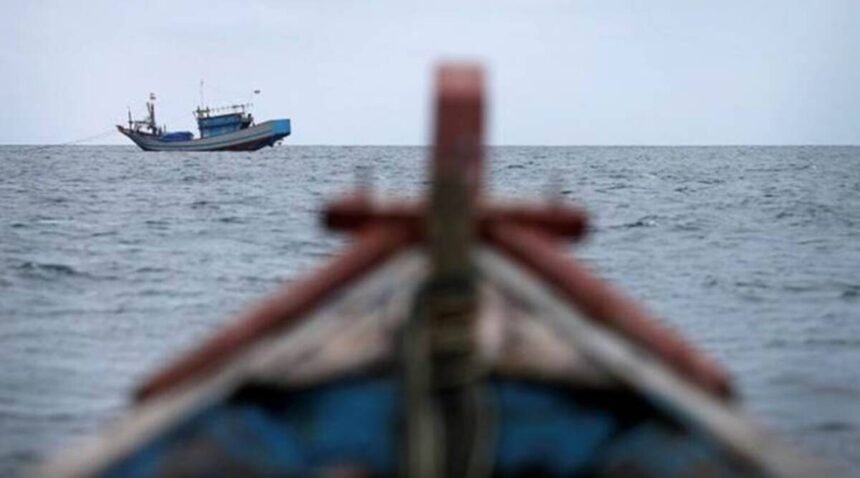In a recent development, the Sri Lankan Navy has apprehended 15 Indian fishermen aboard two trawlers on charges of poaching within the country’s territorial waters. The official statement released on Sunday confirmed the arrests and shed light on the operation that led to the capture.
According to the Sri Lanka Navy, a joint effort involving the navy and coast guard was carried out on the night of July 8 near Delft Island in Jaffna. The operation’s primary objective was to deter and repel Indian trawlers engaged in illegal fishing activities in Sri Lankan waters. As a result of the operation, 15 Indian nationals were detained and taken into custody.
Illegal fishing has long been a contentious issue between India and Sri Lanka, often straining bilateral relations. The Sri Lankan authorities have repeatedly expressed concerns over the persistent incursions by Indian fishermen into their waters, which adversely impact the country’s marine resources and the livelihoods of local fishermen.
The arrest of the 15 Indian fishermen marks yet another incident in the ongoing conflict over fishing rights in the region. Sri Lanka has consistently maintained that it has the sovereign right to protect its territorial waters and prevent unauthorized fishing activities within its maritime boundaries. However, Indian fishermen argue that traditional fishing grounds, which they have relied upon for generations, overlap with Sri Lanka’s waters.
To address the recurring issue, both countries have engaged in discussions and negotiations, aiming to find a mutually acceptable solution. In 2017, a bilateral agreement was signed between India and Sri Lanka to establish a Joint Working Group on Fisheries (JWG) as a forum for dialogue. The JWG meets regularly to address matters related to fishing rights, prevent illegal activities, and promote sustainable fishing practices.
Despite these efforts, tensions continue to arise periodically, leading to arrests and occasional confrontations between fishermen and naval forces. Incidents like the recent arrest of the 15 Indian fishermen highlight the ongoing challenges in effectively curbing illegal fishing activities and finding a lasting resolution to the issue.
The arrested Indian fishermen will likely face legal proceedings in Sri Lanka, wherein they will have the opportunity to present their case. It remains to be seen how the two nations will handle this latest incident and whether it will impact the broader diplomatic relations between India and Sri Lanka.
As the issue of illegal fishing persists, it becomes increasingly crucial for both countries to engage in constructive dialogue and explore sustainable solutions that balance the interests of fishermen while preserving the marine ecosystems. Collaborative efforts, including enhanced surveillance and stricter enforcement measures, may prove instrumental in effectively managing the issue and maintaining peaceful coexistence in the waters shared by India and Sri Lanka.









